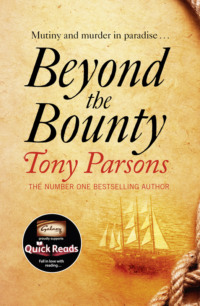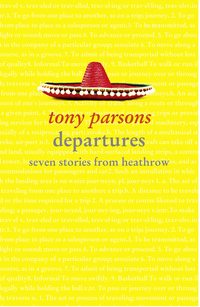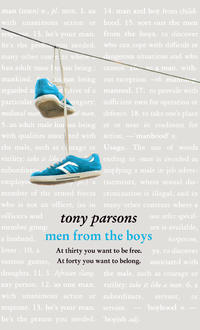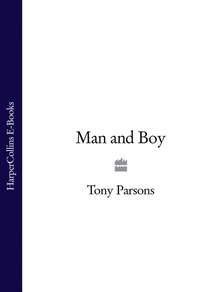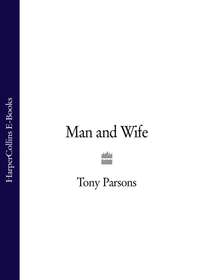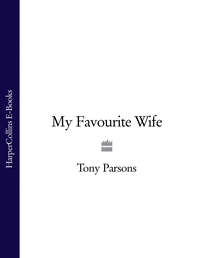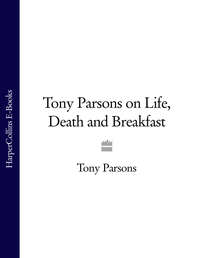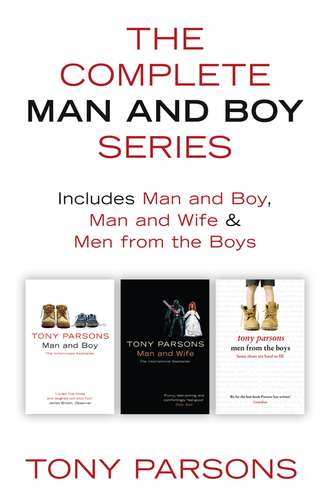
Полная версия
The Complete Man and Boy Trilogy: Man and Boy, Man and Wife, Men From the Boys
Gina had missed all that, she had missed all that through no fault of her own. Personally, I blamed that fucking bastard Richard.
By the time I reached Gina, we knew that Pat was going to be all right. Now I didn’t want her to come home.
I told myself that it was because I didn’t want her to hold Pat and tell him everything was going to be fine and then leave again. But I knew it was not quite as noble as that. Where the fuck was Gina when we needed her?
‘I can be there tomorrow,’ she said. ‘This job can wait.’
‘There’s no need,’ I said, dead calm. ‘It was just a knock. A bad knock. But he’s going to be okay.’
‘I’ll be coming home soon anyway. I’m not quite sure when –’
‘Don’t change your plans,’ I said.
Listen to us – as formal as two people feeling their way at a dull dinner party. Once we could talk all night, once we could talk about anything. Now we sounded like two strangers who had never been properly introduced. Listen to us, Gina.
Cyd was standing on my doorstep holding a takeaway container.
‘Is this a bad time?’
‘No, it’s not a bad time. Come in.’
She came into my home, handing me the container.
‘For Pat. Spaghetti pesto.’
‘Green spaghetti. His favourite. Thank you.’
‘You just need to put it in the microwave. Can you do that?’
‘Are you kidding? Even I know how to use a microwave. One minute or two?’
‘One ought to do it. Is he awake?’
‘He’s watching some TV. Just for a change.’
Pat was sprawled all over the sofa, still in his Star Wars pyjamas and M&S dressing gown, watching the director’s cut of Return of the Jedi. The rule book had been thrown out of the window since he had come home from the hospital.
‘Hi Pat,’ Cyd said, crouching down beside him and stroking his hair, carefully avoiding the large plaster that now covered one side of his forehead. ‘How’s your poor old head?’
‘It’s fine. My stitches are a bit itchy.’
‘I bet they are.’
‘But – guess what? They don’t have to be taken out. My stitches.’
‘No?’
‘No, they just fade away,’ Pat said, looking to me for confirmation.
‘That’s right,’ I said. ‘They dissolve. They’re the new kind of stitches, aren’t they?’
‘The new kind,’ Pat nodded, turning his attention back to Princess Leia dressed as a scantily-clad concubine in the court of Jabba the Hutt.
‘That’s some outfit she’s got on,’ Cyd said.
‘Yes, it is,’ agreed Pat. ‘She’s a slave girl.’
‘Goodness.’
They watched Princess Leia squirming on the end of her chain for a few moments.
‘Well, I’m going to leave you to get better,’ Cyd said.
‘Okay.’
‘Cyd brought you some dinner,’ I said. ‘Green spaghetti. What do you say?’
‘Thank you.’ He gave her his most charming, David Niven-like smile.
‘You’re welcome,’ she said.
I walked her to the door and I realised that something inside me felt like it was singing. I didn’t want her to go.
‘Thanks for coming round,’ I said. ‘It’s made my day.’
She turned and looked at me with those wide-set brown eyes.
‘I mean it,’ I said. ‘This is the best thing that’s happened to me all day. Definitely.’
‘But I don’t understand,’ she said.
‘What don’t you understand?’
‘Why do you like me? You don’t even know me.’
‘Do you really want to know?’
‘Yes.’
So I told her.
‘I like you because you’re strong but you’re not hard. I like it that you don’t take crap from men, but you still left your country for a man because you thought he was the one for you.’
‘Biggest mistake of my life.’
‘Maybe. But I like it that you’re so romantic from watching all those MGM musicals as a little girl.’
She laughed, shaking her head.
‘You see right through men, but you still want to find a man to share your life with,’ I said.
‘Says who?’
‘And I like the way your entire face lights up when you smile. I like your eyes. I like your legs. I like the way you know how to talk to a four-year-old kid. I like the way you were there when I needed someone. Everyone else just stood and stared. You were kind. And you didn’t have to be kind.’
‘Anything else?’
‘You’re beautiful.’
‘I’m not beautiful at all.’
‘You’re beautiful and brave and I’m jealous of every man who ever went out with you. Now and again I walk in front of the place where you work in the hope of bumping into you.’
‘You miss your wife,’ she said. ‘You really miss her.’
‘That’s true,’ I conceded. ‘But it’s also true that you blow me away.’
‘Boy,’ she said, shaking her head. ‘But you still don’t know me.’
She didn’t say it the way she had said it before. Now she said it gently, kindly, as if it weren’t my fault that I didn’t know her.
And she moved towards me as she said it, looking at me with those eyes for a moment before they closed as she placed her mouth upon mine.
I kissed her back. ‘I know you a little bit,’ I said.
‘Yes,’ she said, giving me that. ‘You know me a little bit.’
Nineteen
Pat started school.
The uniform he had to wear should have made him look grown up. The grey V-necked sweater, the white shirt and yellow tie should have made him look like a little man. But they didn’t.
The formality of his school clothes only underlined the shocking newness of him. Approaching his fifth birthday, he wasn’t even young yet. He was still brand new. Even though he was dressed more grown-up than me.
As I helped him get ready for his first day at school, I was startled to realise just how much I loved his face. When he was a baby I couldn’t tell if he was really beautiful, or if that was just my parental software kicking in. But now I could see the truth.
With those light blue eyes, his long yellow hair and the way his slow, shy smile could spread right across his impossibly smooth face, he really was a beautiful boy.
And now I had to let my beautiful boy go out into the world. At least until 3.30. For both of us, it felt like a lifetime.
He wasn’t smiling now. At breakfast he was pale and silent in his pastiche of adult’s clothing, struggling to stop his chin trembling and his bottom lip sticking out, while over the Coco Pops I kept up a running commentary about the best days of your life.
The Coco Pops were interrupted by a call from Gina. I knew it must have been difficult for her to phone – the working day was still going strong where she was – but I also knew that she wouldn’t miss Pat’s big day. I watched him talking to his mother, uncomfortable in his shirt and tie, a baby suddenly forced to impersonate a man.
Then it was time to go.
As we drove closer to the school I was seized by a moment of panic. There were children everywhere, swarms of them all in exactly the same clothes as Pat, all heading in the same direction as us. I could lose him in here. I could lose him forever.
We pulled up some way from the school gates. There were cars double-parked and treble-parked everywhere. Tiny girls with Leonardo DiCaprio lunch boxes scrambled out of off-road vehicles the size of Panzer tanks. Bigger boys with Arsenal and Manchester United kitbags climbed out of old bangers. The noise from this three-foot-high tribe was unbelievable.
I took Pat’s clammy hand and we joined the throng. I could see a collection of small, bewildered new kids and their nervous parents milling about in the playground. We were just going through the gates to join them when I noticed the lace on one of Pat’s brand new black leather shoes was undone.
‘Let me get your lace for you, Pat,’ I said, kneeling down to tie it, realising that this was the first day in his life he had ever been out of trainers.
Two bigger boys rolled past, arm in arm. They leered at us. Pat smiled at them shyly.
‘He can’t even do his shoes up,’ one of them snorted.
‘No,’ Pat said, ‘but I can tell the time.’
They collapsed in guffaws of laughter, holding each other up for support, and reeled away repeating what Pat had said with disbelief.
‘But I can tell the time, can’t I?’ Pat said, thinking they doubted his word, his eyes blinking furiously as he seriously considered bursting into tears.
‘You can tell the time brilliantly,’ I said, unable to really believe that I was actually going to turn my son loose among all the cynicism and spite of the lousy modern world. We went into the playground.
A lot of the children starting school had both parents with them. But I wasn’t the only lone parent. I wasn’t even the only man.
There was another solo father, maybe ten years older than me, a shagged out business type accompanying a composed little girl with a rucksack bearing the grinning mugs of some boy band I had never heard of. We exchanged a quick look and then he avoided my eyes, as if what I had might be catching. I suppose his wife could have been at work. I suppose she could have been anywhere.
The kindly headmistress came and led us into the assembly hall. She gave us a brief, breezy pep talk and then the children were all assigned to their individual classrooms.
Pat got Miss Waterhouse, and with a handful of other parents and new kids we were marched off to her class by one of the trusted older children who were acting as guides. Our guide was a boy of around eight years old. Pat stared up at him, dumbstruck with admiration.
In Miss Waterhouse’s class a flock of five-year-olds were sitting cross-legged on the floor, patiently waiting for a story from their teacher, a young woman with the hysterical good humour of a game-show host.
‘Welcome, everyone!’ Miss Waterhouse said. ‘You’re just in time for our morning story. But first it’s time for everyone to say goodbye to their mummy.’ She beamed at me. ‘And daddy.’
It was time to leave him. Although there had been a few emotional goodbyes before he dropped out of nursery school, this time felt a bit different. This time it felt as though I were being left.
He was starting school, and by the time he left school he would be a man and I would be middle-aged. Those long days of watching Star Wars videos at home while life went on somewhere else were over. Those days had seemed empty and frustrating at the time, but I missed them already. My baby was joining the world.
Miss Waterhouse asked for volunteers to look after the new boys and girls. A forest of hands shot up, and the teacher chose the chaperones. Suddenly a solemn, exceptionally pretty little girl was standing next to us.
‘I’m Peggy,’ she told Pat. ‘And I’m going to take care of you.’
The little girl took his hand and led him into the classroom.
He didn’t even notice me leaving.
I can remember sleeping on the back seat of my father’s car. We were driving away from the city, coming back from nights out – the yearly visit to the London Palladium to see a pantomime, the weekly visits to see my grandmother – and I would watch the yellow lamps of East End streets and Essex A-roads blurring high above my dreaming head.
I would stretch out on the back seat of my dad’s car – ‘You don’t have to sleep, just rest your eyes,’ my mother would tell me – and soon I would be rocked off to sleep by the motion of the car and the murmur of my parents’ voices.
The next thing I knew I would be in my father’s arms, the car up our drive, the engine still running as he lifted me from the back seat, swaddled in the tartan blanket that he kept in the car for our trips to the seaside and relatives and the London Palladium.
These days it takes next to nothing to wake me. A drunk staggering home, a car door slammed, a false alarm miles away – they are all enough to snap me out of sleep and leave me staring at the ceiling for hours. But when I was a child sleeping on the back seat of my dad’s car, nothing could wake me up. I hardly stirred from my dreams when we arrived home and I was carried up the stairs to bed wrapped up in that tartan blanket and my father’s arms.
I wanted Pat to have memories like that. I wanted Pat to feel as secure as that. But with Gina gone and our old VW estate sold to pay the mortgage, these days Pat was by my side in the passenger seat of the MGF, struggling and fighting against sleep even when we were coming back from my parents and there was an hour’s worth of empty motorway ahead of us.
I wanted my son to have car rides like the car rides I had known as a child. But we were travelling light.
Cyd called towards the end of the long morning.
‘How did it go?’ she asked me.
She sounded genuinely anxious. That made me like her even more.
‘It was a bit fraught,’ I said. ‘The chin wobbled when it was time to say goodbye. There were a few tears in the eyes. But that was me, of course. Pat was absolutely fine.’
She laughed, and in my mind’s eye I could see her smile lighting up the place where she worked, making it somewhere special.
‘I can make you laugh,’ I said.
‘Yes, but now I’ve got to get to work,’ she said. ‘Because you can’t pay my bills.’
That was true enough. I couldn’t even pay my own bills.
* * *
My father came with me to meet Pat at the end of his first day at school.
‘A special treat,’ my dad said, parking his Toyota right outside the school gates. He didn’t say if it was a special treat for Pat or a special treat for me.
As the children came swarming out of the gates at 3.30, I saw that there was never a possibility of losing him in the crowd. Even among hundreds of children dressed more or less the same, you can still spot your own child a mile off.
He was with Peggy, the little girl who was going to take care of him. She stared up at me with eyes that seemed strangely familiar.
‘Did you enjoy it?’ I asked him, afraid that he was going to threaten to hold his breath if he ever had to go back.
‘Guess what?’ Pat said. ‘The teachers have all got the same first name. They’re all called Miss.’
My old man picked him up and kissed him. I wondered how long it would be before Pat would start squirming under our kisses. Then he kissed my dad on the face – one of those hard, fierce kisses he had learned from Gina – and I saw that we still had a while.
‘We’ve got your bike in the back of Granddad’s car,’ my dad said. ‘We can go to the park on the way home.’
‘Can Peggy come?’ Pat asked.
I looked down at the solemn-eyed child.
‘Of course she can,’ I said. ‘But we have to ask Peggy’s mummy or daddy first.’
‘My mum’s at work,’ Peggy told me. ‘So’s my dad.’
‘Then who meets you?’
‘Bianca,’ she said. ‘My babysitter. Although I’m not a baby any more.’
Peggy looked around her, gazing up at the herd of adults meeting children until she saw the face she was looking for.
A girl in her late teens was pushing through the crowds, sucking on a cigarette and searching for her charge.
‘That’s Bianca,’ Peggy pointed.
‘Come on, Peggy,’ the girl said, offering her hand. ‘Let’s go.’
Pat and Peggy stared at each other.
‘We’re off to the park for an hour or so,’ I told Bianca. ‘Peggy’s welcome to come with us. And you too, of course.’
The babysitter curtly shook her head.
‘We’ve got to go,’ she said.
‘See you tomorrow then,’ Peggy told Pat.
‘Yes,’ he said.
Peggy smiled at him as Bianca dragged her off through the thinning crowd.
‘I’ll see her tomorrow,’ Pat said. ‘At my school.’
There was dirt on his hands, paint on his face and a piece of what looked like egg sandwich by his mouth. But he was fine. School was going to be okay.
Another difference between me and my old man. After Pat fell into the empty swimming pool, I would have been quite happy never to set eyes on his bicycle again. But during one of those endless hours at the hospital, my dad drove to the park and recovered Bluebell.
The bike was exactly where we had left it, on its side at the empty deep end, undamaged apart from a bent handlebar. I would have cheerfully stuck it on the nearest skip. My dad wanted Pat to ride it again. I didn’t argue with him. I thought I would leave Pat to do that.
Yet when my father took Bluebell from the boot of his car, my son seemed happy to see it.
‘I’ve straightened the handlebar,’ my dad told us. ‘It needs a lick of paint, that’s all. Shouldn’t take a minute. I can do it for you, if you like.’
My dad knew that I hadn’t held a paintbrush since I had dropped out of O level art.
‘I can do it,’ I said sullenly. ‘Put your coat on, Pat.’
It was September and the first cold snap of autumn was in the air. I helped Pat into his anorak, pulling up the hood, watching the smile spread across his face at the sight of his bike.
‘One more thing,’ my father said, producing a small silver spanner from his car coat. ‘I think it’s time that a big boy like Pat took the stabilisers off his bike.’
This was my old man at seventy – tough, kind, confident, grinning at his grandson with boundless tenderness. And yet I found myself railing against his DIY competence, his manly efficiency, his absolute certainty that he could bend the world to his will. And I was sick of the sight of that bike.
‘Jesus, Dad,’ I said. ‘He just fell off the bloody thing five minutes ago. Now you want him to start doing wheelies.’
‘You always exaggerate,’ my father said. ‘Just like your mother. I don’t want the lad to do wheelies – whatever wheelies might be. I just want him to have a crack at riding without his stabilisers. It will do him good.’
My father got down on his haunches and began to remove the little stabilising wheels from Bluebell. Seeing him at work with a spanner made me feel that I had spent my life watching him do odd jobs, first in his home and later at mine. When the lights went on the blink or the rain started coming through the ceiling, Gina and I didn’t reach for the Yellow Pages. We called my dad.
The burst boiler, the knackered guttering, the hole in the roof – no task was too big or too difficult for his immaculately kept tool box. He loved Gina’s praise when the job was completed – she always laid it on a bit thick – but he would have done it anyway. My father was what my mother would call ‘good around the house’. I was exactly the opposite. I was what I would call ‘fucking useless around the house’.
Now I watched Pat’s face bleaching with fear as my dad finished removing the little stabilising wheels from his bike. For a moment I was about to erupt, but then I kept it in. Because if I started, then I knew all the rows of thirty years would come pouring out – my laziness against my father’s can-do capability, my timidity against my old man’s machismo, my desire for a quiet life against my dad’s determination to get his own way.
I didn’t want all that to come out in front of Pat. Not today. Not any day. So I looked on in silence as my dad helped my son on to his bike.
‘Just a little try,’ my dad said soothingly. ‘If you don’t like it, we can stop. We can stop straightaway. Okay, baby?’
‘Okay, Granddad.’
My father seized hold of the bike’s handlebars with one hand and its seat with the other. Pat clung on to both handlebars for dear life, his already scuffed school shoes trailing reluctantly on the pedals as Bluebell’s wheels rolled round and round. With me bringing up the sulky rear, we wobbled past the swings and slides and across an empty patch of grass.
‘Are you holding on?’ Pat asked.
‘I’m holding on,’ my dad reassured him.
‘Could you look after Pat on Saturday night for me?’ I said.
‘Saturday night?’ he repeated, as if it were a strange request, as though I knew very well that was the night he and my mum liked to go out and drop a few Es.
‘Yes, I’m going out.’
‘Of course,’ he said. ‘We’ll always look after him for you. Something to do with work, is it?’
‘Nothing to do with work, Dad. I don’t have any work right now, remember? I’m going out with a girl.’ That didn’t sound quite right. ‘With a woman.’ That didn’t sound quite right either.
I thought that it might have stopped him. But he carried on in his half-crouch, supporting Pat’s bike as we made our way through the daisies and the dog crap.
‘Who is she?’ he asked.
‘Just a friend. We might go to the pictures.’
He finally stopped, rubbing his back as he straightened up to look at me.
‘You think that’s appropriate behaviour for someone in your position, do you?’
‘Going to the pictures? I don’t see why not.’
‘I’m not talking about going to the pictures. I’m talking about going out with a strange woman just after –’ He nodded at the hood of Pat’s anorak. ‘You know.’
‘There’s nothing strange about her,’ I said. ‘And we’re only going to the pictures. We’re not eloping.’
He shook his head, dumbfounded at what the world was coming to.
‘I don’t care what you get up to,’ he said. Then he indicated Pat again. ‘What I care about is him. This girl – is it serious?’
‘I don’t know, Dad. Can we get our first date out of the way before we start picking out curtains?’
I was playing the injured innocent. But I knew that if I went out with a woman it would confuse and frighten him. It wasn’t my intention to hurt him. I just wanted to show him that I was thirty years old and that he couldn’t decide when I took my stabilisers off.
We had come to a ragged scrap of tarmac in front of a tatty stage.
‘Are you ready?’ my father asked Pat.
‘Ready,’ Pat said, sounding not very ready at all.
‘I’m holding you, okay?’ my dad said, increasing his pace. ‘I’m going to keep holding you. Just keep your back straight. And pedal.’
‘Okay.’
‘Are you holding on?’
‘I’m holding on!’
They took off across the tarmac, Pat’s face hidden by the hood of his anorak and my father bent double by his side, like a little elf being chased by a hunchback. Then my dad let go of the bike.
‘You holding on, Granddad?’
‘I’m holding on!’ he cried as Pat left him behind. ‘Pedal! I’ve got you!’
His little legs pedalled. Bluebell gave a dangerous wobble as Pat splashed through a puddle, but the bike seemed to right itself and gather speed.
‘You’re doing it!’ my dad shouted. ‘You’re doing it, Pat!’
He turned to look at me and we both laughed out loud. I ran to my father’s side and he put his arm around my shoulders. He smelled of Old Spice and Old Holborn.
‘Look at him go,’ my dad said proudly.
The bike reached the edge of the tarmac, bounced once and skidded on to the grass. Pat was moving more slowly now, but still pedalling furiously as he made a beeline for the trees.
‘Don’t go too far!’ I shouted. But he couldn’t hear me. He disappeared into the shadows of some old oak trees, like some hooded creature of the forest returning to his lair.
My father and I looked at each other. We weren’t laughing now. We took off after him, our shoes sliding on the wet grass, calling his name.
Then he was nonchalantly riding towards us out of the trees, the hood of his anorak flown off, and grinning from ear to ear.
‘Look what I can do,’ he said proudly, briefly standing up in Bluebell’s stirrups before skidding to a halt.
‘That’s brilliant, Pat,’ I said. ‘But don’t go off like that again, okay? Always stay where we can see you.’
‘What’s wrong with Granddad?’ he said.
My father was leaning against a tree, clawing at his chest and gasping for air. The blood had drained from his face and there was something in his eyes that I had never seen before. It might have been fear.
‘I’ll be fine,’ he wheezed.
‘Granddad?’ Pat said.
‘Granddad’s fine,’ he said.
After a long, desperate minute he managed to get some air in his lungs. Still breathing hard, he laughed off the concern of his son and grandson.


